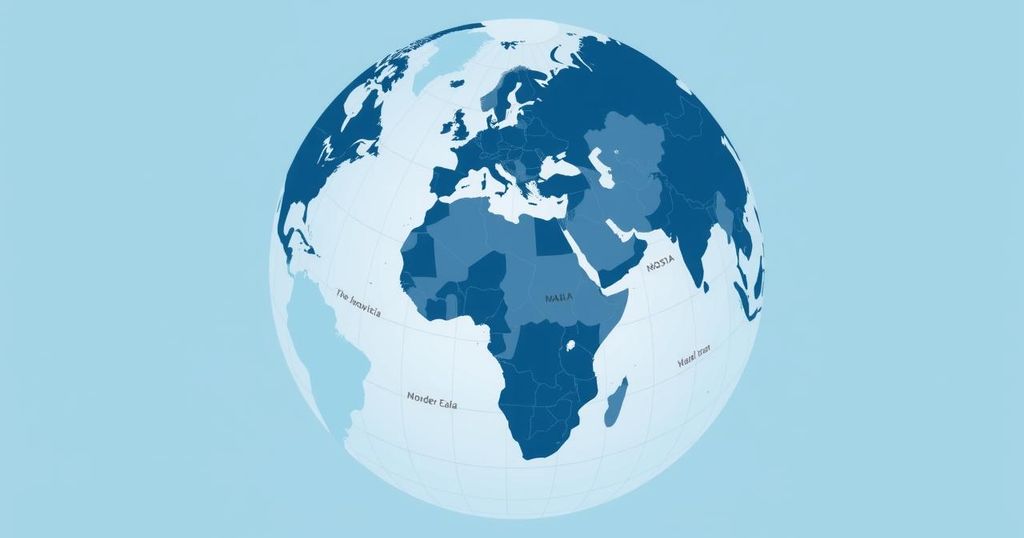The US has proposed a travel ban that may impact Zimbabwe and 40 other countries, classifying nations into red, orange, and yellow tiers based on security assessments. The plan would impose varying restrictions, with Zimbabwe currently in the yellow category, allowing 60 days for compliance. This initiative follows prior attempts by the Trump administration to impose similar bans, which faced legal scrutiny.
The United States has proposed a travel ban potentially affecting Zimbabwe and 40 other nations due to perceived national security and public safety threats. A draft memo shared among aides of President Donald Trump categorizes these countries into three tiers: red, orange, and yellow. The eleven nations marked as ‘red’ would experience a total ban from US entry, which includes Afghanistan, Cuba, Iran, Libya, North Korea, Somalia, Sudan, Syria, Venezuela, and Yemen.
Countries categorized as ‘orange’ would encounter limitations on immigrant, tourist, and student visas. This category comprises Belarus, Eritrea, Haiti, Laos, Myanmar, Pakistan, Russia, Sierra Leone, South Sudan, and Turkmenistan. Zimbabwe is classified in the ‘yellow’ tier, signifying a 60-day period to rectify concerns raised by the US or face potential elevation to a more restrictive classification.
The proposed list, curated by the US State Department, consists of nations experiencing significant restrictions or indefinite travel bans, which includes Angola, Antigua and Barbuda, Benin, Burkina Faso, and Vanuatu, among others. Although the memo requires validation, the White House has yet to provide public commentary on this matter.
This proposal is a continuation of an executive order signed by President Trump in January 2021 aimed at safeguarding the US against foreign threats, including terrorism and misuse of immigration policies. Earlier, in January 2017, Trump enacted an executive order titled ‘Protecting the Nation From Foreign Terrorist Entry Into the United States,’ which prohibited Syrian refugees and temporarily halted entry from multiple countries, including Iraq, Iran, and Libya.
The revised iteration of this ban was eventually upheld by the US Supreme Court, which affirmed restrictions on citizens from Iran, Libya, North Korea, Somalia, Syria, Venezuela, and Yemen in 2018. Contrarily, President Joe Biden rescinded the ban upon his inauguration in 2021, labeling it as unrepresentative of America’s longstanding tradition of welcoming individuals from diverse backgrounds.
The proposed US travel ban, which could affect Zimbabwe among others, categorizes countries into three tiers, with varying levels of restrictions. The implications of these classifications could have significant consequences for travel and immigration. Prior attempts to limit entry based on national security have been met with legal challenges, but recent actions under the Biden administration have sought to reverse such policies in favor of a more inclusive approach.
Original Source: news.pindula.co.zw






